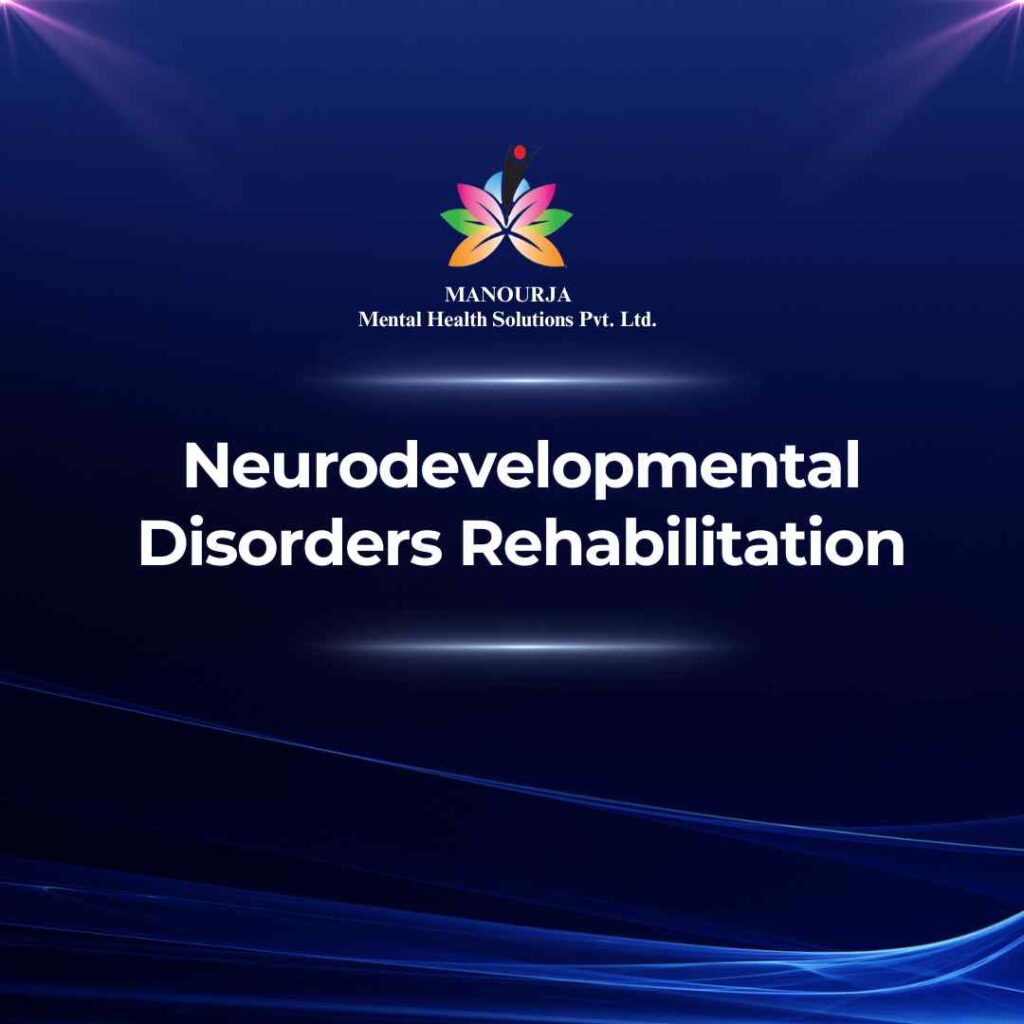Neurodevelopmental Disorders Rehabilitation

Neurodevelopmental disorders encompass a group of conditions that typically manifest early in development and are characterized by developmental deficits that produce impairments in personal, social, academic, or occupational functioning. Common disorders include autism spectrum disorder (ASD), attention-deficit/hyperactivity disorder (ADHD), and learning disorders.
Signs and Symptoms of Neurodevelopmental Disorders
- Social Deficits: Challenges with social cues, difficulty in making friends, or lack of interest in social interactions (common in ASD).
- Communication Issues: Delayed speech development, difficulty in understanding and using language.
- Repetitive Behaviors: Engaging in repetitive motions, rigid routines, and resistance to change (noted in ASD).
- Inattention: Difficulty sustaining attention, being easily distracted, forgetfulness (typical in ADHD).
- Hyperactivity and Impulsivity: Seeming to be constantly ‘on the go’, acting without thinking, difficulty waiting turns (seen in ADHD).
- Learning Difficulties: Trouble with academic skills, which significantly interfere with academic achievement or daily activities.
Indicators for Outpatient Psychosocial Rehabilitation (OPD)
- Mild to moderate symptoms that do not significantly impair safety or require 24-hour monitoring.
- Presence of a supportive home environment where therapies can be consistently applied.
- Ability to travel to and participate in scheduled therapy sessions.
Indicators for Inpatient Psychosocial Rehabilitation (IPD)
- Severe symptoms that greatly impair functioning or pose safety risks.
- Lack of a stable or supportive home environment.
- Need for intensive, multidisciplinary intervention not feasible in an outpatient setting.
Factors Influencing the Decision
- Severity and nature of the disorder.
- Family’s ability to support the individual’s needs.
- Availability and accessibility of outpatient services.
- Individual’s response to previous treatments.
How Psychosocial Rehabilitation Aids in Treating Neurodevelopmental Disorders
Psychosocial rehabilitation focuses on building skills and supporting the individual to function optimally within their community and personal life. Key approaches include:
- Behavioral Therapy: To help modify problematic behaviors and develop social skills.
- Educational Interventions: Specialized educational plans that cater to learning disabilities.
- Social Skills Training: Group settings where individuals can learn and practice social skills in a safe environment.
- Family Therapy: Educating family members about the disorder and effective strategies to handle challenges.
Specific Techniques and Approaches at MANOURJA
- Applied Behavior Analysis (ABA): A therapy based on rewarding positive behavior to improve a range of skills.
- Cognitive Behavioral Therapy (CBT): Used particularly with older children to help manage behavior by changing thought patterns.
- Occupational Therapy: Helps to improve fine motor skills, coordination, and daily living skills.
- Speech Therapy: Focuses on improving communication skills, including spoken, nonverbal, and social communication.
Steps in Psychosocial Rehabilitation at MANOURJA
- Detailed Assessment: Evaluating cognitive, behavioral, and social skills to understand the specific needs.
- Development of a Personalized Rehabilitation Plan: Tailored to address the unique challenges of each individual.
- Implementation of Intervention Programs: Structured therapy sessions based on the rehabilitation plan.
- Regular Monitoring and Adaptations: Continuous assessment of progress and adjustments to the interventions.
- Family Involvement and Training: Equipping families with strategies and understanding to support the individual’s development.
“Every step is progress, no matter how small.”
